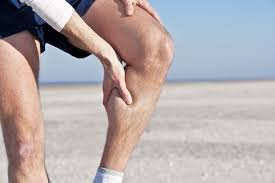
Exploring the Benefits and Risks of Diuretic Supplements for Weight Loss

Weight loss is a popular health goal for many people, and as a result, the weight loss business is flooded with products and tactics promising quick results. Among these supplements, diuretics have gained appeal as a rapid way to lose excess weight. Diuretics are substances that induce diuresis, or increased urine production, which can result in temporary weight loss due to water loss.
Table of Contents
Introduction
In this detailed article, we shall go into the topic of diuretic pills for weight loss. We will investigate how diuretics function, the potential benefits they provide, the hazards connected with their use, and if they are a long-term solution for weight loss.

An Overview of Diuretics
Let’s go through the fundamentals of diuretic supplements for weight loss.
- What Exactly Are Diuretics?
Diuretics, also known as “water pills,” are chemicals or drugs that promote the removal of excess fluid and salts from the body by increasing urine production. Doctors frequently prescribe diuretics to treat illnesses like edema (fluid retention), high blood pressure, and heart failure. They work by interfering with the normal functioning of the kidneys, which are responsible for managing the body’s water balance.
- Different Types of Diuretics
Diuretics are classified into three types: thiazide diuretics, loop diuretics, and potassium-sparing diuretics. Each class has a different effect on the kidneys and is prescribed for specific medical situations. It’s crucial to keep in mind that not all diuretics are available without a prescription, and their use should always be under the supervision of a medical professional.
Diuretic Supplements for Weight Loss
Let us understand the mechanism and sustainability of using diuretic supplements for weight loss.
- Diuretic-Induced Weight Loss Mechanism

Diuretics are substances or drugs that stimulate diuresis, or increased urine production, to aid in the elimination of excess water from the body. When a person drinks diuretics, they set off a chain of actions within the kidneys. Its main method of action involves changing the way the nephrons work. The nephrons are microscopic filtering units in the kidneys that maintain the body’s fluid balance.
Under normal conditions, the kidneys reabsorb water and critical electrolytes like sodium and potassium to keep the body in balance. Diuretics interfere with this mechanism. Thiazide diuretics, for example, limit salt reabsorption in the distal convoluted tubules, which inhibits water reabsorption. This causes the body’s urine output to increase, eliminating extra fluids and electrolytes. Loop diuretics, like furosemide, have a similar action, especially in the Henle loop.
This enhanced diuresis causes a significant drop in body weight. However, it is critical to remember that the weight lost due to diuresis is mostly due to the evacuation of water rather than fat. This momentary weight loss can be visible on the scale and cause a sense of lightness, but it is critical to understand that it is not indicative of actual fat loss. As a result, depending primarily on diuretics for weight loss is neither sustainable nor successful in the long run.
- Weight Loss in the Short vs Long Term

Diuretics are intriguing to people seeking instant results in their weight loss quest due to their capacity to quickly remove water weight. This quick effect on the scale can be motivational for people starting their search for a leaner body. However, it is critical to recognize the transitory nature of diuretic-induced weight loss.
Diuretics’ temporary weight loss is only temporary. The pounds lost are quickly returned as the body’s fluid balance is restored, often by rehydration. It is critical to understand that diuretics do not contribute to significant or long-term fat loss. While the numbers on the scale may fall in the short term, this does not reflect actual body fat loss, which is a critical component of attaining long-term, healthy weight management.
Diuretics are not a feasible weight loss approach for people who want to lose weight in the long run. Instead, it is critical to focus on long-term, evidence-based approaches to weight management, such as eating a well-balanced diet, exercising regularly, and making lifestyle changes that improve overall well-being. These tactics not only encourage fat loss, but they also provide several health benefits that go beyond weight control.
Diuretics’ Weight Loss Advantages
Let us elaborate on the major benefits of diuretic supplements for weight loss.
- Rapid Weight Loss at First

One of the key appeals of diuretics in the context of weight loss is their capacity to induce rapid and noticeable weight loss. Seeing a substantial decline on the scale can be quite motivating for people who are just starting their weight loss journey. This quick outcome provides a psychological boost, motivating individuals to continue their efforts and stay committed to weight loss.
The body’s ejection of extra water is what causes the rapid weight loss brought on by diuretics. Because diuretics enhance urine output, the body’s fluid equilibrium is upset, resulting in the loss of excess water. While this weight loss may be short and mostly due to water weight loss rather than fat loss, it can be a potent motivator for people looking for a quick fix.
- Water Retention and Reduction

Water retention, commonly known as edema, can be a major source of anxiety for many people. It frequently presents as bloating and pain, resulting in a feeling of fullness and puffiness. Diuretics, which effectively reduce excess water retained in the body’s tissues, can be useful in easing these symptoms.
Diuretics can treat the core cause of water retention by increasing urine output and facilitating water elimination. This can alleviate bloating, relieve discomfort, and add to a general sense of well-being. However, while diuretics can provide temporary relief from water retention, they are not a long-term solution for managing this illness. It is critical for long-term relief to identify and address the underlying reasons for water retention, such as dietary variables or underlying health issues.
- Swelling and Edema Reduction

Diuretics can provide much-needed respite for people suffering from edema-related medical disorders. Edema is defined as an abnormal buildup of fluid in the body’s tissues, which frequently causes swelling and discomfort, particularly in the limbs.
Diuretics are routinely administered to those who have heart failure, kidney illness, or liver disease, all of which can cause edema. Diuretics work by increasing urine output, which helps get rid of extra fluid and eases the pain that comes with a number of medical conditions. This can help people with edema enhance their quality of life by making daily activities more tolerable and less unpleasant.
Dangers and Risks of Diuretic Use
Some of the potential risks of using diuretic supplements for weight loss programs are as follows:
- Dehydration

The main issue with diuretics is dehydration. Diuretics can cause dehydration by encouraging water loss, which can have substantial health repercussions if severe. Symptoms of dehydration include dizziness, weakness, and a fast heart rate.
- Imbalance of Electrolytes

Diuretics remove not only excess water but also vital electrolytes such as potassium and salt. An electrolyte imbalance can cause cardiac rhythms, muscular cramps, and other health problems.
- Muscle Cramps

Loss of electrolytes can result in painful muscle cramps that limit one’s capacity to engage in physical exercise.
- Kidney Impairment

Prolonged and excessive diuretic use can put tremendous strain on the kidneys, potentially resulting in kidney damage. It is crucial to only use diuretics in accordance with a doctor’s instructions.
Myths About Diuretics’ Role in Weight Loss
After the benefits and risks of diuretic supplements for weight loss, let us debunk some popular myths related to these types of supplements.
- Myth #1: Diuretics Burn Fat

One prevalent myth is that diuretics help people lose weight. In truth, they mostly cause water weight loss with little to no effect on fat loss.
- Myth #2: Diuretics are a Long-Term Weight Loss Solution

Diuretics are not a long-term weight-loss option. The weight loss is just temporary, and after the body rehydrates, the pounds lost are usually restored.
Tips to Use Diuretics Safely and Responsibly
Diuretics, whether prescribed for medical problems or taken as weight loss aids, must be carefully managed to ensure they are used safely and responsibly. These supplements can provide unique benefits when used responsibly, but when used incorrectly, they can cause major health hazards. You must consider all the prominent benefits and risks of diuretic supplements for weight loss before making the best decision regarding them.
Here are some important considerations for using diuretics safely and responsibly:
- Medical Monitoring

Diuretics, whether over-the-counter or prescribed, should always be used under the supervision and advice of a healthcare practitioner. Self-prescribing diuretics or using them for reasons other than medical necessity might have major health repercussions.
Healthcare experts determine the need for diuretics based on a patient’s individual health profile for medical disorders such as hypertension, heart failure, or edema. They prescribe the correct diuretic kind and dosage and monitor the patient’s response to the drug. Diuretics can effectively treat these problems when used under physician supervision.
When considering diuretics for weight loss, it is critical to contact a healthcare practitioner or qualified dietitian. They can accurately assess a person’s weight loss needs and offer safe, evidence-based techniques for accomplishing those goals. It is discouraged to use diuretics for weight loss without a good medical reason, as this can lead to possible health hazards.
- Adequate Hydration

When using diuretics, it is critical to stay hydrated. Diuretics act by increasing the excretion of water from the body, which can cause fluid imbalances. It is critical to drink enough water to compensate for the fluid loss caused by diuretics. Dehydration can occur when appropriate hydration is not maintained, and symptoms include dizziness, dry mouth, and an elevated heart rate.
To prevent dehydration in those using diuretics, healthcare experts may recommend particular requirements for daily water intake. These guidelines should be strictly followed to guarantee that the body’s fluid equilibrium is preserved, even in the context of diuretic-induced water loss.
- Electrolyte Monitoring

Diuretics not only increase water excretion but also affect the balance of critical electrolytes like sodium, potassium, and chloride. An electrolyte imbalance can cause a variety of health problems, including muscle cramps, cardiac arrhythmias, and weakness.
Individuals who use diuretics, especially for an extended period of time, must constantly evaluate electrolyte levels. Blood tests can be ordered by healthcare providers to assess these levels and alter medication as needed. Dietary adjustments may be recommended in some circumstances to help maintain electrolyte balance.
By continuously monitoring electrolytes, healthcare practitioners can avoid or manage any imbalances that may occur as a result of diuretic use, thereby protecting the individual’s general health.
Note: There might be affiliate links mentioned here. We may receive a commission if you purchase a product through an affiliate link. There is no additional charge for you. Please do your own research before making any online purchases.
Prescription Diuretics vs Diuretic Supplements
Understanding benefits and risks of diuretic supplements for weight loss and as prescription medicines requires distinguishing between the two purposes. While both can improve urine production and minimize fluid retention, there are substantial differences between the two.
- Diuretics on Prescription

Diuretics on prescription are potent medications that require careful dosing and ongoing monitoring by medical professionals. They are an important part of the medical toolbox for treating specific health issues such as hypertension (high blood pressure), heart failure, and edema (abnormal fluid retention). Prescription diuretics are only used after a complete medical evaluation and a clear diagnosis of the underlying health condition.
These diuretics are classified into three types: thiazide diuretics, loop diuretics, and potassium-sparing diuretics. Each class is designed to treat a certain health issue and differs in terms of mechanism of action and adverse effects.
Evidence-based medical treatment plans include prescription diuretics. The dosage and duration of use are carefully calculated in order to balance the therapeutic benefits with the potential negative effects. When diuretics are recommended, regular check-ups and electrolyte level monitoring are usually part of the patient’s care plan. This cautious treatment tries to reduce hazards while optimizing the benefits of diuretic therapy.
- Diuretic Supplements

Diuretic supplements, on the other hand, are available over the counter and may not be subjected to the same level of rigorous testing and regulation as prescription drugs. These supplements are frequently sold as weight reduction aids, but there is little scientific data to back up their efficacy and safety.
Diuretic supplements might take the shape of tablets, teas, or herbal cures. They frequently contain natural diuretics such as dandelion extract, caffeine, or other herbs. Diuretic supplements, unlike prescription diuretics, are not meant to treat specific medical diseases, and their safety and effectiveness are not backed by the same level of clinical study.
Diuretic supplements may be intriguing to persons seeking immediate results in their weight reduction journey due to their ease of access and marketing as quick-fix remedies for shedding water weight. However, using diuretic pills for weight loss is not without hazards. When used incorrectly or excessively, they can cause dehydration, electrolyte imbalances, and other health problems.
Before using diuretic supplements, users should exercise caution, be aware of the potential hazards, and speak with healthcare specialists. While pharmaceutical diuretics have their role in medical treatment, diuretic supplements should be used with caution and only when absolutely necessary. A balanced diet, frequent exercise, and lifestyle adjustments, all of which can be suggested by healthcare professionals or trained dietitians, are the best ways to achieve safe and effective weight management.
Diuretics Alternatives for Weight Loss
After assessing the major benefits and risks of diuretic supplements for weight loss and debunking some popular myths regarding them, let us share some effective and healthy alternatives to dieuretics for weight loss.

The most permanent and successful strategy to reduce weight is to combine a healthy diet with frequent physical activity. This method increases fat loss rather than water loss, and it also provides other health benefits in addition to weight loss.
- Changes in Lifestyle

Healthy lifestyle modifications, such as stress management, getting enough sleep, and staying hydrated, can also help with weight loss.
- Medical Professional Consultation

Individuals battling with weight concerns should seek advice from healthcare professionals or licensed dietitians who can give individualized and evidence-based weight loss techniques.
FAQs
What exactly are diuretics?
Diuretics, also known as “water pills,” are chemicals or drugs that promote the removal of excess fluid and salts from the body by increasing urine production. Diuretics are frequently prescribed by doctors to treat illnesses such as high blood pressure, heart failure, and edema (fluid retention).
How do diuretics help you lose weight?
Diuretics function by increasing urine production, which leads to the elimination of excess water from the body. This causes transient weight reduction owing to water loss, but it’s vital to note that it’s mostly due to water expulsion, not fat loss.
Can diuretics help you lose weight long-term?
Diuretics do not help with long-term weight loss. Diuretics cause temporary weight loss, and after the body’s fluid equilibrium is restored, often through rehydration, the lost pounds are returned.
What are the weight loss advantages of diuretics?
In certain medical circumstances, diuretics can provide rapid initial weight reduction, reduce water retention, relieve bloating and pain, and provide relief from swelling and edema.
What are the dangers and risks of diuretic use?
The most serious hazards of diuretic use are dehydration, electrolyte imbalance, muscle cramps, and the possibility of kidney damage if used excessively and without sufficient supervision.
Can diuretics help you lose weight?
No, diuretics mostly cause water weight loss and have little to no effect on fat loss.
How do diuretic supplements differ from prescription diuretics?
For the treatment of medical disorders, prescription diuretics are carefully dosed and monitored by healthcare specialists. Over-the-counter diuretic supplements may lack scientific data to support their efficacy and safety.
What are the diuretic alternatives for weight loss?
Healthy weight reduction alternatives to diuretics include eating a balanced diet and exercising regularly, making lifestyle changes, and consulting with healthcare specialists for tailored and evidence-based weight loss solutions.
How should I use diuretics responsibly and safely?
Diuretics should only be used under medical supervision; sufficient hydration should be maintained to compensate for fluid loss; and electrolyte levels should be evaluated on a regular basis, especially if used for an extended period of time.
What is the most long-term approach to weight loss?
A balanced diet and regular physical activity, supplemented by healthy lifestyle changes and supervision from healthcare professionals or certified dietitians, is the most lasting and effective strategy to weight loss.
Conclusion
Diuretics might provide a speedy but temporary solution to weight loss by reducing water retention; however, their use has a number of hazards, including dehydration, electrolyte imbalances, and severe kidney damage. Must learn the prominent benefits and risks of diuretic supplements for weight loss. These supplements should only be taken under the direction of a physician and for certain medical problems.
A balanced diet, frequent exercise, and healthy lifestyle choices are considerably more effective and safer than diuretics for long-term, sustainable weight loss. Furthermore, those considering the use of diuretics for weight loss should be informed of the hazards and speak with a healthcare expert before beginning such a regimen. In the pursuit of a healthier and leaner body, it is critical to prioritize safe and evidence-based weight management measures above quick cures that may cause more harm than benefit.
Disclaimer: The information provided in this article is for educational purposes only and should not be considered as a substitute for medical advice. Consult a healthcare professional before implementing any home remedies or making significant changes to your lifestyle.






